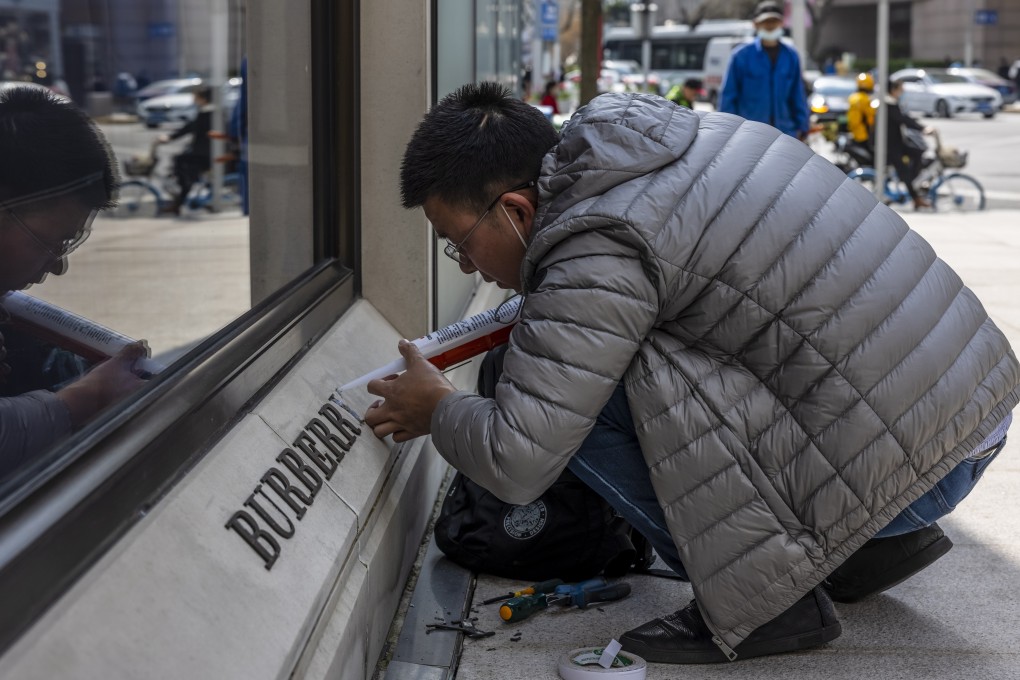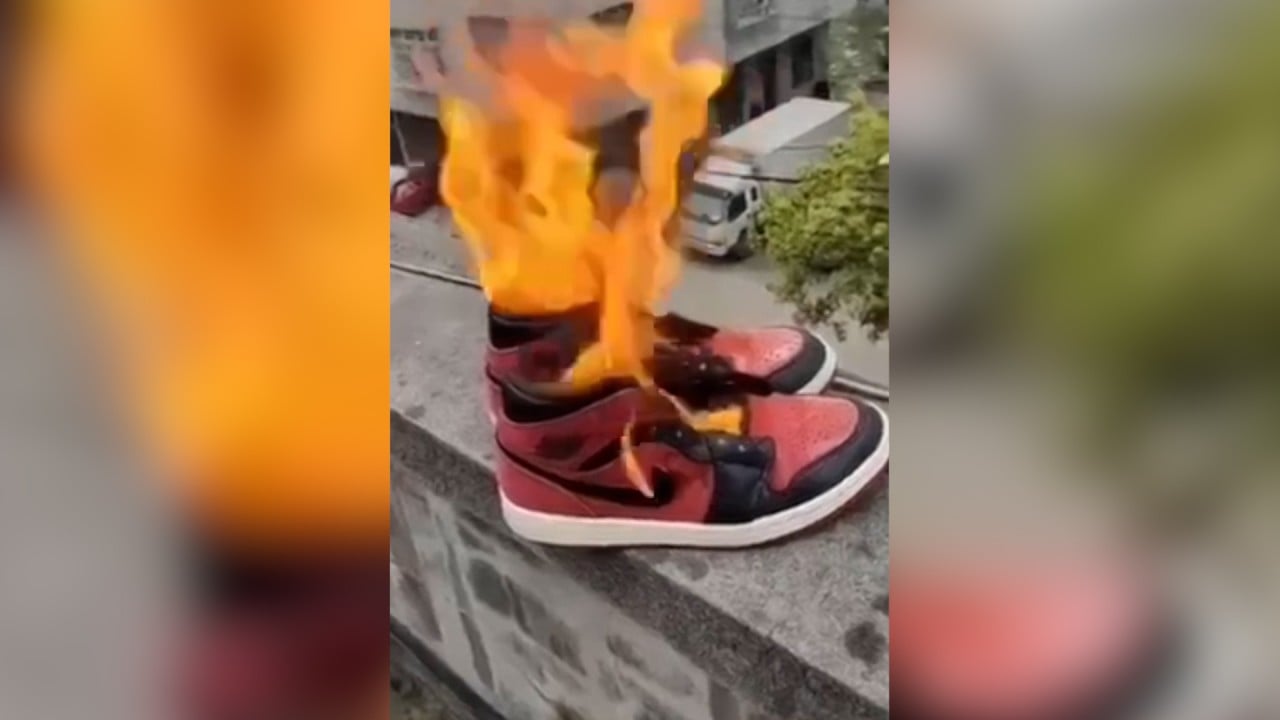Advertisement
Opinion | Xinjiang cotton row puts Burberry, Nike and other Western brands in a quandary – and pushes Hong Kong’s patriots to walk the talk
- With Chinese media and netizens attacking Western brands that have shunned Xinjiang cotton on human rights grounds, Hong Kong’s Beijing loyalists are under pressure to purge their wardrobes
- Western companies wanting a slice of China’s market , meanwhile, face a tough choice between money and morals
Reading Time:3 minutes
Why you can trust SCMP
20

Now that Beijing has decreed only patriots can rule Hong Kong by radically overhauling our election system, local loyalists have a perfect opportunity to prove their patriotism by going through everything in their wardrobes and shoe racks.
Advertisement
Is that a Burberry trench coat, handbag or scarf? Dispose of them post-haste. Is that Nike or Adidas? Shame on you.
Some might shed tears. Others might be heartbroken. Even so, their patriotic duty demands they dispose of and boycott foreign brands that mainland officials, media and internet users have named and shamed.
The less well-heeled loyalists need to know that more affordable brands – and I mean no disrespect – such as H&M, Zara and Uniqlo are also on the hit list.
As Hong Kong becomes mainlandised, there really is no need for wealthy patriots to patronise Burberry or Nike. They are spoiled for choice with mainland brands. There are plenty of knock-offs for the less well-heeled.
For patriots scratching their heads over why Burberry, Nike, H&M and other Western brands are now taboo, allow me to explain. These brands have said they will not source Xinjiang cotton they believe is produced by forced Uygur labour in what Beijing calls “re-education camps”.

Advertisement

